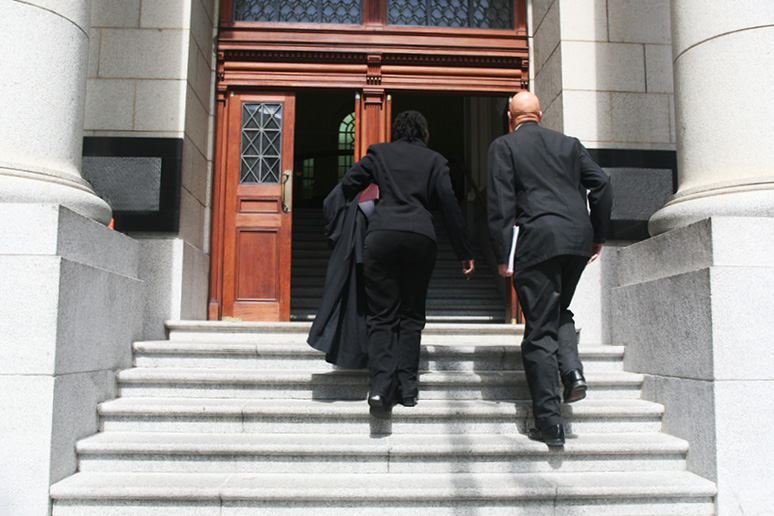The differences between civil and criminal court cases vary greatly in their legal and financial consequences. Any of type of law suit or criminal prosecution can be financially and emotionally draining, but it is important to understand the differences between the two. Generally speaking, civil courts help people resolve legal disputes when they can’t resolve them on their own, whereas criminal courts determine if a person has committed a criminal offense. There are several distinct differences between civil and criminal court.
“Crimes carry with it the prospect of imprisonment, fine, other losses of freedom. Civil cases are ordinarily related to financial interests of some sort. Somebody is suing over a piece of cloth or a deprivation of health because of the way in which a coal mine is operated. There can be civil suits against government or governments can institute civil suits but unless there’s a violation of a court order which could potentially lead to contempt and some confinement, civil cases are ordinarily just about money.” Eric A. Seiff, an appellate prosecutor with Storch Amini PC, explains some key differences between civil and criminal cases.
Civil Court
- Commonly used in disputes between individuals or businesses, including divorces, contract disputes, landlord-tenant disputes, and personal injury cases.
- The plaintiff sues the defendant, asking the court for damage compensation (personal injury or property damage), to dissolve a marriage, or to order the defendant to take some kind of action.
- In most civil cases, parties do not have the right to a trial by jury, and the verdict does not need to be unanimous.
- Civil cases only require a verdict based on “a preponderance of the evidence,” which is an easier standard to meet than the criminal requirement of “beyond a reasonable doubt.”
Some of the most famous civil cases that reached the Supreme Court include:
Brown v. Board of Education (1954): It is unconstitutional to separate white and black students in public schools.
Loving v. Virginia (1967): State laws prohibiting interracial marriage are no longer valid.
Roe v. Wade (1973): During the first two trimesters of pregnancy, women have a right to an abortion.
Obergefell v. Hodges (2015): Same-sex marriage is now legal in all 50 U.S. states.
Criminal Court
- The state brings charges against an individual for breaking the law.
- The prosecutor, not the victim, decides what charges to bring against the defendant.
- The prosecutor must prove the charges brought against the defendant beyond a reasonable doubt.
- The defendant generally has the right to a trial by jury.
- In most cases, the jury’s verdict must be unanimous.
- If convicted, the defendant will likely receive some form of punishment, which may include fines, probation, community service, jail or prison, and other penalties.
Some of the most famous criminal cases that reached the Supreme Court include:
Mapp v. Ohio (1961): Material that was obtained illegally is inadmissible in a criminal trial.
Gideon v. Wainwright (1963): Representation without charge must be provided to defendants who cannot afford to hire counsel.
Miranda v. Arizona (1966): Police must advise prisoners of their rights before questioning them.
United States v. Nixon (1974) Not even the president is above the law.
Cases can involve both civil and criminal components. For example, if a drunk driver injures a pedestrian, that pedestrian can sue for damages. This will occur in civil court. However, the drunk driver may also face criminal penalties for his actions in criminal court. The driver may need to pay civil damages for the pedestrian’s pain and suffering, lost wages, and medical bills as well as criminal penalties in the form of fines.
Although some attorneys practice both types of law, most specialize in either civil or criminal. Finding an attorney with extensive experience handling cases similar to yours is essential. Do your research and find the right attorney the first time. Whether you are bringing or fighting a lawsuit or facing criminal charges, strong legal representation can make all the difference in the world.
 By Amy Carst,
By Amy Carst, 

